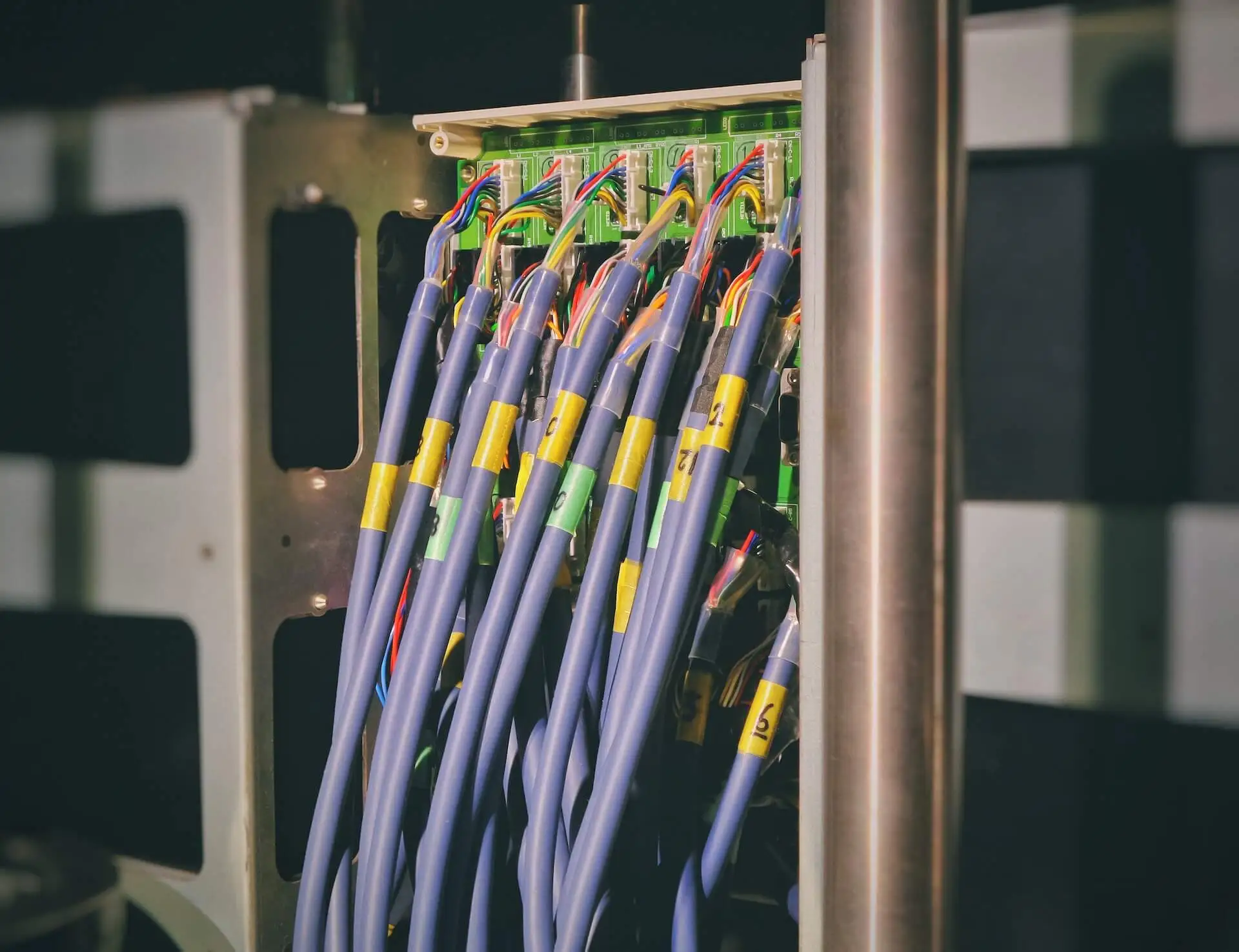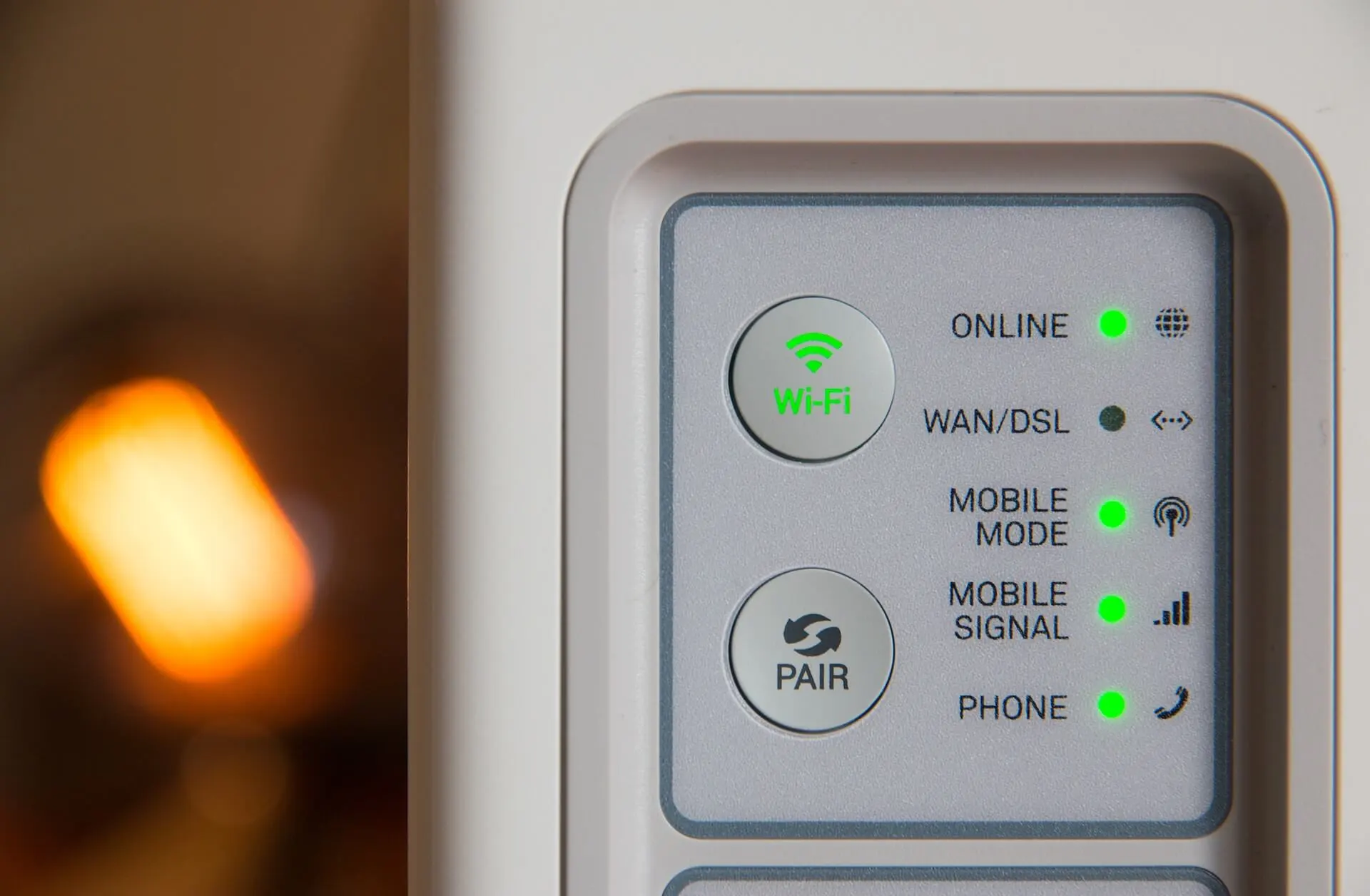When the internet first became available in 1993, many would think of it as something luxurious. That was when internet speed was not much of a concern to many people since the whole concept of the internet was not deemed vital.
But in today’s modern world, the necessity of high-speed internet access is conspicuous. Actually, the internet has shaped our lives and changed many of its essential aspects, such as how we communicate, work, study, do our routines, and even the way many of us get entertained. From money transactions to watching favorite shows on Netflix, internet speed is paramount to a better life.
But the average internet speed available to users varies by nation. Generally speaking, richer countries tend to have higher speeds of internet connection. When it comes to developing countries, they try to keep up with other nations by making higher investments in their infrastructures.

In this article, we talk about the top countries with the highest internet speed, the technologies involved, and the opportunities ahead of us for enjoying a more reliable internet connection.
But before delving into the details, let’s review a fun fact about the internet:
The first message sent on the internet was ‘LO’. It happened in 1969 and was an unsuccessful attempt to transmit the word ‘LOGIN’ that failed because of a system crash!
And this was the result after trillions of attempts. Poor internet users of that time!?
Which Countries Offer the Highest Internet Speed?
The simplest definition of internet speed is the data transmission rate over the internet. Two units are used to measure it: megabits per second (Mbps) and gigabits per second (Gbps).
To put it simply, bits are tiny data units, different from bytes. So a megabit means one million bits.
While certain factors, such as being far from internet hubs, inadequate infrastructure, and competition between ISPs affect internet and download speeds, some countries overcome others in terms of service quality.
Considering the technological advances, the following paragraph lists the top ten countries with the best internet speed:
Countries With the Fastest Internet Connections That Have Made the Cut
The following rating is based on the statistics as of April 2023.
1. Singapore: Leading the Race

For many years, the advanced country of Singapore has been atop the list of the speediest internet services. But that’s not all. This Asian country has also secured the second position of affordable internet service globally. The main reason for this ranking is the investments of the country in fiber-optic technology, the advanced infrastructure that provides access to the internet with the highest speed.
Average internet speed: 242 Mbps
2. Chile: Setting South-American Standards
Famous for its vibrant culture, Chile’s lightning-quick internet speed makes it the second-fastest nation in this ranking. With its spectacular scenery, Chile is at the top of the list of countries with superb internet service in Latin America. This sought-after destination attracts thousands of visitors yearly, especially those tech-savvy people looking for business opportunities or even moving to a new country.
Average internet speed: 222.49 Mbps
3. United Arab Emirates: Digital Paradise of the Middle East
The famous country of the United Arab Emirates, located in the Arab Peninsula, comprises seven emirates and was promulgated as an independent federal state in 1971. The country has developed rapidly over the past decades and has the third-fastest internet speed. The worthwhile investments of the government in internet infrastructures have resulted in good access to the internet in more than 99% of the country’s land.
Average internet speed: 216.78 Mbps
4. China: Censored But Fast
China is the world’s second-populous nation, with a population now standing at about 1.4 billion. The largest of Asian countries has the largest number of active internet users in the whole world. The fascinating news for internet lovers is that the country tested 6G technology in April 2023. However, the heavy restrictions on the internet have made it one of the most censored internet services across the globe.
Average internet speed: 215.8 Mbps
5. Hong Kong: Big Speed in a Small Area

The metropolis of Hong Kong stands in fifth place with the swiftest internet speed. The top-notch Internet services in this region have made it appear on the list of highest-quality Internet services worldwide for many years. Visitors to this Asian super-city have reportedly confirmed the ease of access to the internet. So whether you stay somewhere or keep moving within the town, peak internet speed is always at hand.
Average internet speed: 205.19 Mbps
6. Thailand: Natural Beauty and Digitally Connected
The next country in our top ten is also an Asian nation. Known for its sun-drenched beaches, the cultural diversity of Thailand draws so many tourists to the country. Along with the beautiful natural attractions, the outstanding internet service makes it an ideal destination for tech-savvy people and digital nomads. What could be better than the perfect combination of reliable online connectivity and a welcoming atmosphere?
Average internet speed: 204.26 Mbps
7. United States: Innovation and Quality
The fourth-largest country ranks at number seven on this list. Home to AT&T and some other well-known internet providers, the latest data shows more than 92% access to a minimum speed of 100Mbs nationwide. Thanks to satellite internet, people in rural areas also have easy access to the internet. In addition, over the past years, the agenda of President Biden has resulted in new investments in the Internet as well.
Average internet speed: 202.4 Mbps
8. Denmark: Reliable Fixed and Mobile Internet
Denmark is famous for its glamorous lifestyle and is one of the most developed economies. This Scandinavian country has fast internet connectivity, and many consider it a hub for innovation. The great ranking is not limited to fixed broadband speed since the broad coverage of the 5G network provides excellent mobile internet access across the country. So you can be sure Denmark has much to offer if you’re looking for a vibrant work environment.
Average internet speed: 199.94 Mbps
9. Spain: Consistent Internet Service Improvements

Spain, the favored travel destination, is the largest country in southern Europe. The country currently has a great internet speed, and the government has put initiatives in place to supply more rural areas with reliable internet connections. While most areas now benefit from a minimum internet speed of 100Mbs, better services will be available by 2025. That’s because many investments have been made with a focus on 5G.
Average internet speed: 175.96 Mbps
10. Romania: Natural and Digital Wonders
The last country on this list is Romania. Famous for its landscapes and UNESCO World Heritage Sites, it’s rated among the fastest internet speeds in Europe. The amazing blend of modernity and history attracts many individuals interested in exploring cultural heritages while enjoying fast online connectivity. The excellent internet speed has also made it a place for many businesses looking for remote workers.
Average internet speed: 174.26 Mbps
Speed Comparison: Home Broadband vs. Mobile Broadband

Now that we know about the fastest internet speeds in the world, let’s have a quick look at home broadband and mobile broadband services.
Home broadband services usually have a wide variety of packages available to users. Depending on the service provider, the maximum internet speed varies as some harness the power of more advanced technologies. The higher maximum speed allowance is made possible because of the fixed connection.
Additionally, these services usually have more generous data allowances that make them perfect choices for families or groups of users. And thanks to wireless routers, you can provide internet access anywhere in the place you install it.
On the other hand, mobile broadband is an easy-to-use option, usually in the form of a portable dongle. Different mobile dongles come with varying connection speeds. But it’s typically slower than home broadband in many areas. One of the significant benefits of mobile broadband is that there’s no need for a landline, making it a preferable choice for many users.
Although fixed-line internet has long been the first choice for many users in different countries, the advent of high-speed 4G and 5G networks have enticed many individuals to choose mobile broadband. Actually, it’s a flawless choice since it makes high-speed connection available without a fixed line.
For example, the maximum speed you can achieve in the UK through a mobile home broadband service usually tops out at 150Mbps. But going after the fixed-line broadband unlocks up to 1Gbps.
Overall, fixed-line services are still advantageous because of greater reliability and higher performance.
What Factors Affect Your Internet Speed?
Whether you face issues with your internet connection or not, there are multiple factors worth noting that affect the speed and quality of your internet speed. Here we have covered some of these important factors to consider:
1. Government Policies and Initiatives
The invention of the internet changed many things. The world before and after the internet is not the same since this technology has affected many aspects of economic growth.
Over the past decades, many pieces of research have been carried out regarding the impacts of the Internet on the economy. The expansion of connectivity has indeed driven economic development in many parts of the world. The successful outcomes result from automated processes that, in turn, increase productivity. Also, improved access to education and the emergence of online learning platforms directly impact the economy.
A recent research found that doubling internet speed yields GDP growth. So decision-makers in society directly impact the quality and speed of the internet, and eventually, improve the economic conditions by their policy choices. Governments that promote the importance of broadband and invest money in the infrastructure make room for economic growth and provide people with top-notch internet services.
2. Fiber-Optic Cables

Fiber optic cable is the modern alternative to the standard wired cables for telecommunications. Unlike their copper counterpart, fiber optic cables don’t use electric current to transmit information. Data transmission happens via light; to be more specific, an optical fiber is a thin glass strand. These cables come in two main types: Single Mode Fiber (SMF) and Multi-Mode Fiber (MMF).
This technology makes it possible to provide higher bandwidths and send data over long distances without impairing quality. Moreover, these cables don’t dissipate heat and are not sensitive to electromagnetic fields. So all modern data networks should now include fiber optics cables as necessary components.
Since these cables can handle more data, the internet services using this infrastructure will be faster. Some analyses show that an internet connection running on fiber internet can be up to 100 times faster than copper wires. So this is a major factor in the overall quality of an internet service.
3. Location and Usage Time
The place you live can affect your internet speed. You may go through different experiences of internet service quality when living in the capital or a high-density city compared to rural areas. High-speed technologies are usually available in towns or major cities, and ISPs can’t provide reliable services to users outside of those hotspots.
Another important factor is the usage time. Just like the times of day when traffic jams happen on the streets, there are peak hours during which internet usage is at its highest. So if you use the internet during those peak hours, chances are high you face slowdowns while streaming videos or playing online games. In the same fashion, some service providers have bandwidth limitations. As a result, during certain times when many users are online, your internet speed will be negatively impacted.
Global Efforts for Increasing Internet Speed
Improvements in internet speed are at more than just the country level. Over the years, some global attempts have also been made to make faster internet available. For example, in 2021, the European Commission set a target for 2030 for reaching high speeds of gigabit connectivity across Europe. This decision is accompanied by a focus on 5G coverage in densely populated areas.
Here we take a look at some of these important initiatives that raise the hope for using improved services:
United Nations Connect 2030 Agenda
In September 2015, the United Nations launched a plan for sustainable development that includes 17 main goals. One of the important goals is to increase the use of quality telecommunications that support the digital economy.
One of the targets of this agenda for 2023 is to provide at least 65% of households worldwide with access to the Internet. Additionally, compared to the year 2017, the costs of internet services should become 25% more affordable. There’s also another goal to pursue that focuses on connectivity speed. The minimum speed of broadband subscriptions should be 10Mbit/s in more than 40% of the countries.
By implementing the strategies, we can see significant improvements in internet speed for years to come.
Satellite Internet

For many people, satellite internet is equivalent to Starlink. But that’s just the beginning since this technology is going mainstream.
For many years, everyone considered the space internet a slow service they could use as a last resort when other methods were unavailable. However, as governments and private companies put more focus on the space internet, we see major revamps.
Alongside Starlink, its competitor OneWeb has also financed the research and manufacturing of satellites. Iriss, the satellite network of the EU, has also planned to enter its satellites into low-Earth orbits from 2025.
Thanks to the increased global awareness and focus on the space industry, the costs of manufacturing and launch of satellites are reducing.
This is great news because we can be hopeful for extended coverage in different parts of the world and, eventually, easier access to the internet. As satellite technologies advance, we can also be buoyant about improved network speed and quality soon.
World Bank’s Broadband Strategies Toolkit
The Handbook of broadband strategies prepared by the World Bank guides decision-makers regarding broadband development. It considers broadband as an ecosystem and comes with solutions and examples necessary for the expansion of these networks. It discusses the strategies officials can map out to develop the plans, including the necessary technologies and how they can facilitate access.
With these initiatives and plans in place, we can look on the bright side that easier and faster connectivity will become available to more people in the upcoming years.
Wrapping It Up
In our modern world, nobody should consider high-speed access to the internet a luxury. And countries like Singapore, Chile, UAE, China, and Denmark have taken considerable steps toward this goal.
Improving internet connectivity to better shape the modern world requires going after advanced technologies to improve infrastructures along with global collaboration. Nations that have adopted these technologies now see numerous benefits to their people and societies. From healthcare and transportation to education and communications, various areas enormously benefit from these improvements.

So whether you’re a remote worker, digital marketer, professional gamer, or just someone who enjoys fast online connectivity, keep yourself up to date with the news of internet services. You’ll surely get excited when hearing about new technologies and achievements.
Don’t forget to share your experiences or thoughts in this regard with us in the comments section below.
Highest Internet Speed FAQ
Although there’s no rule of thumb for this question, we can consider a connection speed exceeding 100Mbps “fast”. To put it another way, if you run a speed test on your network and see 25Mpbs and 3Mbps numbers as download and upload speeds, respectively, then you have a good connection.
Your internet plan, the hardware you use, simultaneous downloading while browsing the web, connecting to a public network, and having too many devices connected to the same router can all affect the overall quality of your internet connection.
If you’re an online gamer, slow speed affects the latency between the device and the server. The higher your internet speed, the less lag you experience. Also, if you prefer streaming in HD or UHD qualities, a stable and fast internet connection is an absolute necessity for a smooth experience.
Generally speaking, a fixed-line connection is faster than many mobile broadband services currently available. But if you’re in a rural area or need flexibility with your internet service, then 4g/5g broadband services would be the preferable choice.



0 Comments